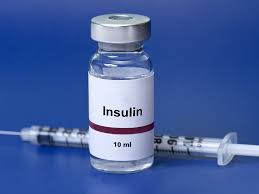
We’ve all been “hangry,” so hungry that we become angry at the slightest frustration or provocation. But could low blood sugar make you so hangry you’d abuse your spouse?
In an effort find out, scientists asked married couples to secretly stick pins into a voodoo doll representing their spouses, and blast noise in their spouses’ ears. The results, released Monday in the Proceedings of the National Academy of Sciences (PNAS), does appear to show a link between lower blood sugar and marital spats.
Led by Brad Bushman, a professor of communication and psychology at The Ohio State University, the experiment tested a hypothesis about self-control.
The researchers had 107 couples monitor their blood glucose levels with over-the-counter monitors once in the morning and once in the evening for 21 days. Every evening the partners were to privately stick needles into voodoo dolls to indicate how angry they were with their spouses, zero meaning not at all, up to a high of 51.
Even after controlling for a number of variables like overall relationship satisfaction, people with lower glucose levels stuck more pins in the dolls. There was no difference between men and women in how they were affected.
Then Bushman had couples come into his lab to play a simple computer game against each other while sitting in different rooms. In fact, they were playing against a computer and the results were rigged so they’d win and lose about the same number of rounds.
As a punishment for “losing” a round, the victor could play an obnoxious noise — a combination of fingernails on chalkboards and other irritating sounds like an airhorn — into the earphones of the loser at a volume the victor selected, up to about the level of a smoke alarm. (Actually, the computer controlled the noise level.)
Those people with lower glucose levels, and who stuck more pins into the dolls, also tended to blast the noise.
“Thus,” Bushman and colleagues wrote, “low glucose levels might be one factor that contributes to intimate partner violence.”
Many experts believe that self-control can be depleted like a battery, as illustrated in one famous 1998 study: Two groups of hungry people were placed in a room containing a plate of freshly-baked cookies and a plate of radishes. One group was told they could eat cookies, the other told they could eat only radishes. Both groups were then asked to complete a puzzle they didn’t know was unsolvable.
The cookie group worked twice as long on the puzzle. People in the radish group gave up sooner because they had to exercise more self-control to avoid eating the cookies. So there was less willpower left to work on a frustrating puzzle.
A number of factors can deplete self-control, said Brandon Schmeichel, a professor of psychology at Texas A&M University who studies this phenomenon. Performing a task that requires self-control — like not eating a cookie when you really want one, or doing math problems, or filling out your 1040 form — can do it, as can mood, alcohol, and one’s ability to keep your eye on long-term goals, rather than short-term impulses. “That can be difficult to do,” Schmeichel said.
Glucose is a more controversial factor. Proponents argue that the brain uses a lot of energy, especially the pre-frontal cortex that exerts control over our baser instincts and helps us reason. Low glucose can leave the brain low on gas. And being low on gas weakens self-control.
But others point out that some studies suggest self-control is not always limited, and that experiments trying to link low glucose to low self-control are contradictory. Some show an effect, some do not.
Bushman believes there is a cause-effect link and that “aggression starts when self-control stops.”
Professor Florian Lange, a neuroscientist at Hannover Medical School in Germany, praised some parts of the study, but via email said he’s not convinced there’s “a significant role for glucose in self-regulation/self-control.”
A number of other factors could explain the experiment’s results “equally well,” Lange said. For example, he speculated, “who are these violent people having low blood sugar?” he asked.
“Maybe they eat healthier in order to be fit to do extreme sports, an activity they like to pursue because they are more risk-taking,” Lange suggested. “This latter variable could explain why they show more aggression.”
Whether or not low glucose specifically depletes self-control, though, most experts agree that hunger can. As Bushman said, “hungry people are cranky people.”
So, he said, “if you are having a discussion with your spouse about a conflict situation, make sure you’re not hungry.” He advised skipping candy bars and other high-sugar foods, which can spike glucose but lead to a crash. Instead, say, before that last minute tax return debate, eat something nutritious.
source; today




